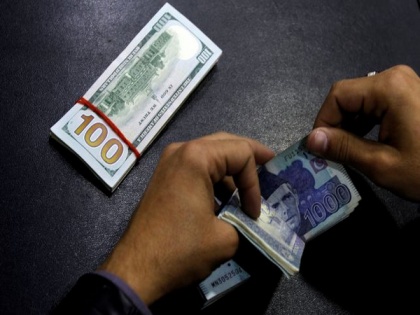Pakistan: Financial crisis affects many primary projects
By ANI | Published: April 29, 2023 06:24 PM2023-04-29T18:24:29+5:302023-04-29T18:25:09+5:30
Islamabad [Pakistan], April 29 : Cash-strapped Islamabad is facing difficulties in financing several primary projects, Asian Lite International reported. ...

Pakistan: Financial crisis affects many primary projects
Islamabad [Pakistan], April 29 : Cash-strapped Islamabad is facing difficulties in financing several primary projects, Asian Lite International reported.
The recent one is the construction of a facility for the Pakistan International School in Cairo. According to a report, the Egyptian government has levied steep fines for the incomplete construction of the school.
Due to the currency crisis it is currently experiencing, Pak Mission is unable to pay the fine or finish the building within the allotted time. Due to financial constraints, the school's long-delayed construction project is currently only 70 per cent complete. The Pakist mission in Cairo is currently facing the dilemma of taking the embarrassing decision of occupying the building without finishing the other half of it, according to a report published in Asian Lite International.
Islamabad has often struggled to fund important initiatives related to its international missions. In the past, there have been reports concerning difficulties encountered by Pakist embassies in releasing salaries that have been overdue for several months. It routinely fails to pay salaries to its embassies in the USA, France, Germany, Oman, Austria, and Belgium. The Pakist Treasury's ability to access cash has declined. It is no secret that the current forex crisis in Islamabad has begun to affect even the importation of basic necessities and raw materials.
The economic forex situation is quickly approaching a "financial emergency." Pakistan has been resorting to urgent cost-cutting measures since late December after realising this. These actions have the following effects: rationing of gasoline for government cars; restrictions on official travel; cessation of leave encashments; suspension of payment of medical bills; and removal of allowances, as per Asian Lite International.
The Pakist government has compelled it to borrow more due to its cash flow problems. The Pakistan Finance Ministry's most current report on the nation's debt condition provides more information. Analysts do not rule out major risks of default because Pakistan's Gross Financing Needs to GDP ratio and Debt-to-GDP ratio are currently higher than desirable levels, which indicate that the country's debt is not sustainable.
In the most recent fiscal year, Islamabad's public and publicly guaranteed debt climbed to 78 per cent of GDP, and it now faces the possibility of further growth due to compulsive government borrowing to avoid keeping the government afloat, overcoming the FX crisis, and avoiding default.
According to Asian Lite International, achieving the Pakist government's declared objective of a nearly one-third reduction in four years is almost unattainable. According to experts, a country like Pakistan shouldn't have a debt-to-GDP ratio that is more than 70 per cent.
The other factor that determines sovereign default, the gross finance needs of the government, in Pakistan exceeds 15 per cent of GDP, which experts generally agree is the sustainable level. Additionally, it is predicted that over the next three fiscal years, the gross financing needs will be between 19.2 per cent and 18.9 per cent of GDP, underscoring the seriousness of the situation that could lead to a default on the nation's debt.
All of the aforementioned problems have resulted from shocks to real GDP growth, primary balance, real interest rate, currency rate, and contingent liabilities. These eventually had an unsustainable effect on debt levels, which increased. Islamabad's debt servicing costs increased by PKR 1.5 trillion in the current fiscal year due to the interest rate shock alone, which represents almost 70 per cent of the year's anticipated income.
Until now, Islamabad has tried to conceal all significant economic statistics. However, the World Bank has now brought the right facts out. The state of the development partner currently offers information about Pakistan's internal and external debt, potential liabilities, and economic prognosis for the following three fiscal years, as per Asian Lite International.
The Pak economic authorities should have paid more attention to this exercise, but they were preoccupied with creating a positive picture even as the economic wounds grew deeper.
Debt Justice, a campaign group, recently issued a warning that the cost of debt servicing in poor countries would increase over the next 25 years. Pakistan serves as an extreme example of such debt.
According to the report, Pakistan's scheduled payments on its foreign public loans will consume 47 per cent of its 2023 tax receipts, leaving very little money for capital formation and investment. As a result, the country's economic prospects would suffer, further exacerbating the cash and currency crises as it would have an adverse effect on government revenues and export earnings. It's unclear how long Islamabad will be able to sustain its debt.
Pakistan's finances are spiralling out of control, yet its leaders are too preoccupied with resolving personal differences with one another to prioritise the nation's economic woes. It does not auger well, Asian Lite International reported.
Disclaimer: This post has been auto-published from an agency feed without any modifications to the text and has not been reviewed by an editor
Open in app